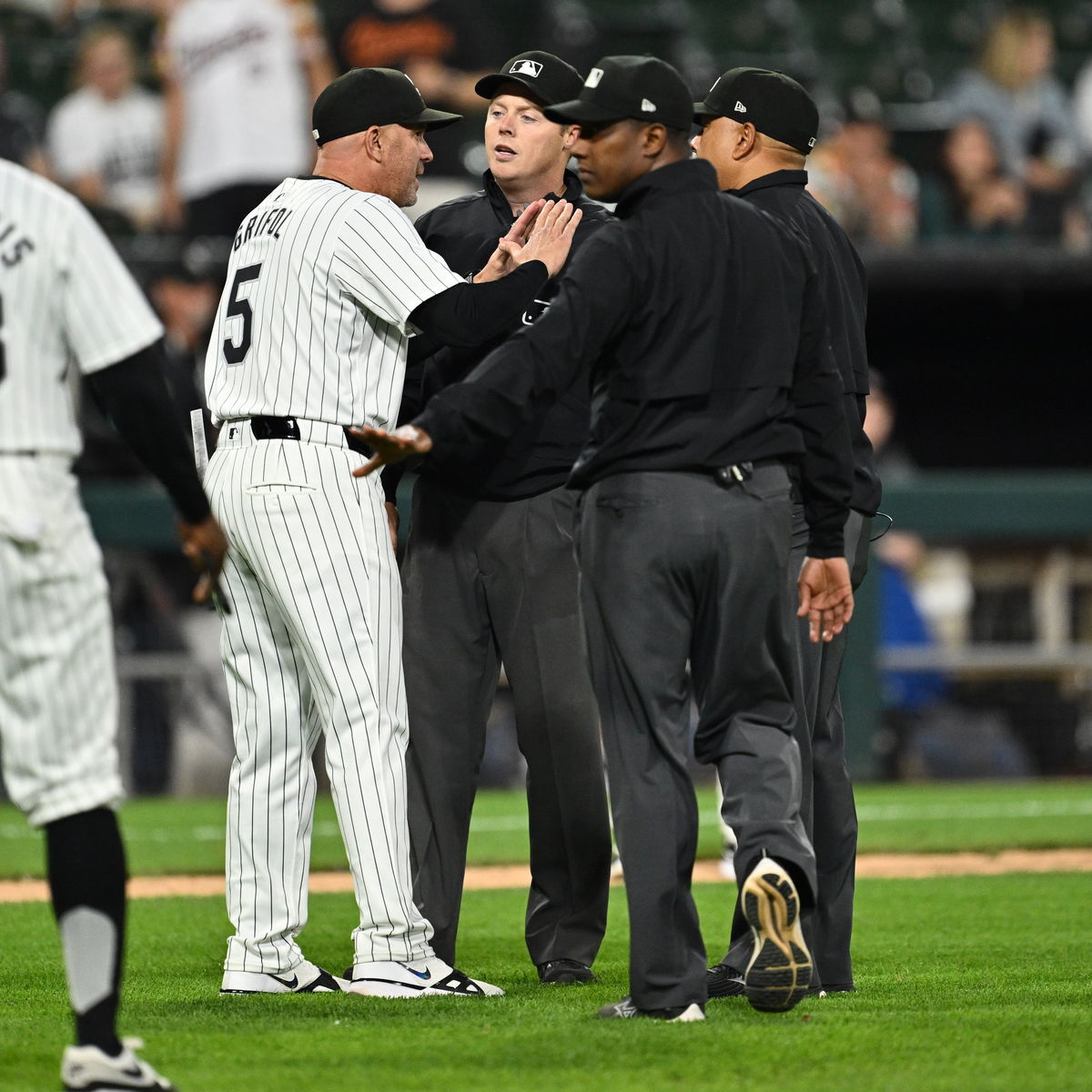

The baseball world collectively gasped last night as a controversial umpire call snatched victory from the jaws of the Chicago White Sox, leaving a bitter taste in the mouths of players, managers, and fans alike. The incident, which occurred in the ninth inning of a nail-biter against the Baltimore Orioles, has reignited the debate over the competence of MLB umpires and the urgent need for reform.
Watch What’s Trending Now!
The scene was set for a dramatic finish. The White Sox, trailing 8-2 entering the bottom of the ninth, mounted a furious comeback, scoring four runs and bringing the potential winning run to the plate. With bated breath, the crowd watched as Andrew Benintendi popped up a Craig Kimbrel pitch to shortstop Gunnar Henderson. Infield fly rule: automatic second out, right?
The infield fly/interference double-play call to end the Orioles and White Sox game is, without a doubt, the worst umpire call I've seen in baseball history. Each time I watch the replay I am left more and more infuriated. MLB needs to end the continued #UmpShow mess.
— Dan Clark (@DanClarkSports) May 24, 2024
ADVERTISEMENT
But then things went south in a hurry. As baserunner Andrew Vaughn retreated to first, he inadvertently bumped into Henderson, who was attempting to field the ball. To the astonishment of everyone, Vaughn was called for interference by the MLB umpires, promptly ending the game and giving Baltimore an 8-6 win.
White Sox manager Pedro Grifol erupted in fury, storming onto the field to argue the call, but to no avail. Crew chief Adrian Johnson later explained that intent is not required for interference, only that the baserunner hinders the fielder. “When you see the interference, you call it,” Johnson stated matter-of-factly.
Still furious postgame, Grifol contended that Vaughn didn’t mean to make contact and didn’t prevent Henderson from catching it. “I’m good with the way they called the play,” Grifol conceded. “I’m just not good with the rule.”
ADVERTISEMENT
MLB Umpires: The imperfect human element
This incident is just the latest in a string of controversial calls that have plagued MLB this season. The outrage has hit a fever pitch, with even longtime baseball insider Jon Heyman calling for major change. In a recent column, Heyman declared, “Aaron Judge’s ejection was my last straw—it’s time for drastic MLB umpire change.”
ADVERTISEMENT
Andrew Vaughn is called for interference after an infield fly rule. An Absolutely BRUTAL call to end the game…. pic.twitter.com/AyhCWwiHeY
— White Sox Talk (@NBCSWhiteSox) May 24, 2024
According to Heyman, there are two primary reasons why now is the time for “Robo Umps,” or the Automated Ball-Strike System (ABS). First, the system boasts perfect accuracy, unlike even the most skilled human umpires. Second, and perhaps more importantly, Robo Umps lack the emotional biases that can lead to unjust ejections, such as the one New York Yankees’ Aaron Judge suffered recently.
Heyman also called out the inconsistency of MLB umpires, citing data showing that Judge has received the most bad strike calls since 2018 in MLB history. “It’s quite an injustice,” Heyman writes, “that he has an ejection on his ledger while previous Yankee captain Derek Jeter—who routinely showed displeasure with strike calls—was never ejected.”
ADVERTISEMENT
The White Sox-Orioles debacle only served to amplify Heyman’s cries for change. John Schriffen, calling the game for NBC Sports Chicago, was apoplectic: “No, they can’t end the game like this! … That’s a terrible call… We’ve seen some bad calls this season, that is one of the worst calls that I’ve ever seen.” Analyst Steve Stone echoed Schriffen’s sentiments, calling it a “horrible ending” to the game.
Top Stories
Toronto Loyalist Raises Alarm as Shocking Bo Bichette Update Puts Blue Jays’ 2026 Dreams on the Brink

Mets Become Leading Contender For 30YO Ex-Phillies Star after David Stearns’ Mega Offseason Misses, Per Insider

$275M Cardinals Star’s MLB Future All but Sealed as U.S. Sportscaster Asks $2.75B Team to Make Bold Move

Red Sox’s Alex Bregman Fallout Becomes Evident as Two MLB Rivals Ignite Fierce Bidding War, per Report

Blue Jays-Dodgers Suffer Bitter Snub As $4B NL West Rival Given Edge In Race For 28YO Cardinals Star

As the dust settles and tempers cool, one thing is clear: this incident has exposed the deep flaws in the current umpiring system. MLB must take swift and decisive action to restore the integrity of the game and ensure that justice is served, both on and off the field. The time for excuses is over. The future of baseball may very well depend on it.
ADVERTISEMENT
ADVERTISEMENT
ADVERTISEMENT

